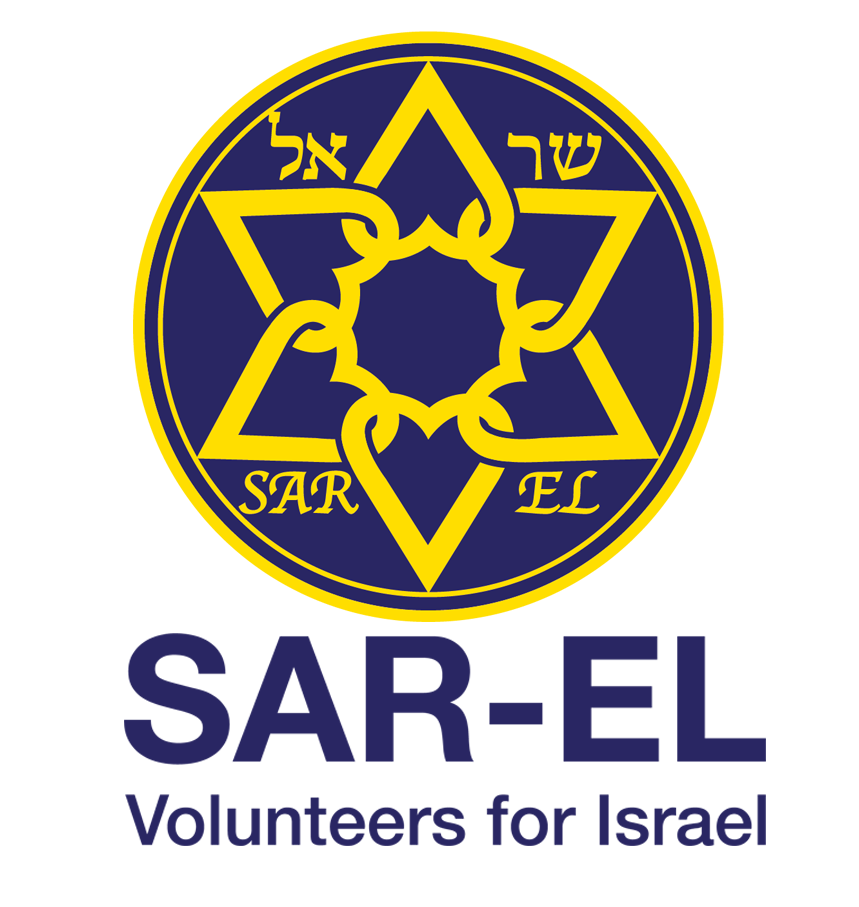By: Johnny Cahn
This was my fifth Sar-El stint, and as with every other one, this again was the best. Of course, I can’t say where we went and what we saw, but this trip was truly special. We were at a base in an area that I never thought we would be sent to; we served with a battalion that I never thought we would be assigned to.
I took some photographs of generic subjects, desert-scapes and road signs, but the real memories will the photographs of the young men and women I took with my mind’s eye. As always, we worked in the area of logistics, moving stuff from point A to point B, but we were surrounded by young fighters. As everyone knows, the IDF is composed of essentially two types of soldiers: the fighters, and the “jobnicks”. In the US Army, the equivalent would be the door-kickers and the REMFs (the RE stands for Rear Area).
 We were in a warehouse packaging kits for the soldiers in an improvised production line. A soldier approached me.
We were in a warehouse packaging kits for the soldiers in an improvised production line. A soldier approached me.
“Are you Johnny?”
“Yes, what’s your name?”
“I am Avraham (not his real name.)
“Na-eem meod, Avraham.”
“Na-eem meod. They told me you were a fighter in Vietnam, Johnny.”
“That was a long time ago, Avraham, probably before your parents were born.”
“Why did you come here; you already did your fighting.”
“I came here to help you and Israel; my parents were in Auschwitz so I know how important it is for Jews to have a safe place in the world. I also come here to make sure you and your fellow soldiers know that you are not alone.”
“Thank you for doing this.”
“It’s a mitzvah, no need to thank anyone.”
“What is the pin on your uniform?”
“It’s a five-year pin. This is my fifth time of mitnadvut.”
“Johnny. You have been doing this for five years? I think you are crazy!”
“Many people agree with you.” We both laugh.
I look at his red boots (combat boots worn by elite fighters). “Avraham, you are a fighter, right?”
“Yes.”
“Can I ask why you are working here in the warehouse while your comrades are training right outside?”
“I had an incident.” He pauses. “A Palestinian threw a pipe bomb at me. It did not explode, but it struck me in the eye.” He lifted his eyelid with his finger and I could see the injury to his bloodshot eye and the surrounding area.
For the next few minutes he recounts the incident to me in detail including his counter measure to the combatant who had assaulted him.
“Johnny, I cannot sleep most of the time. When you were fighting in Vietnam, did you have the same thing happen to you? I see this scene over and over again in my head. They have assigned me here until I can get over this.”
I stare at him. “Yes, I have had that experience. The recurring thoughts are called a loop.”
“When does it go away?”
“Never, . . . if you have a soul.”
“Never?”
“It gets better over time. You learn to cope with it, but it comes back when you are weak or tired.”
“How can you cope?”
“I was lucky, medication worked for me; I still take anti-depressants, and they are very effective for me. Others with more severe cases benefit from counseling and talking about their experiences and feelings with others who have had the same experience.”
“I have been talking to a counselor here.”
“In the States we have made significant progress working with PTSD; you know what that is, right?
“I think I am learning now.”
“One of the coping mechanisms I always remember is that if the things you see and do in combat disturb you, it means that your heart and soul are functioning properly. If you tear yourself apart over right and wrong, then your parents raised you well. If you never forget these experiences and learn from them, then you’re a Mensch.”
He gives me a hug. I’m a little embarrassed because American men don’t do extended hugs.
“Avraham, make sure you get medication and counseling. You will be fine; I am very proud of you. You will probably not realize how much of a hero you are until you are my age and are talking to a young soldier, maybe your own child, who comes to you for advice.”
As with all other volunteers, I pray that some day our Sar-El service will no longer be needed, and that all future trips to Israel will be to visit our historic and holy sights, or to spend time on the beach in Tel Aviv. Until then, we’ll keep coming back and supporting our defenders. Am Yisrael Chai.

